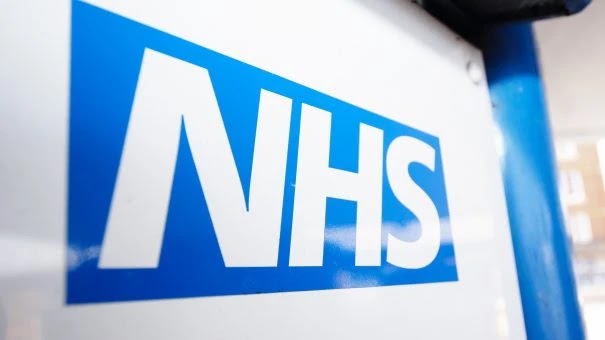Adminfinity - The Job of Type 1 Diabetes
You've likely heard of the 180 extra decisions a person with T1D makes each day. Some of those take just a few moments while others are very time consuming. Those decisions and the 24/7 management are why you'll hear diabetics referring to T1D as an unpaid job.
Today, I'm going to look at the tasks involved in living with T1D, why they are never-ending, why some are unnecessary, and my personal biggest annoyance.
The Relentless T1D Tasks
The constant cycle of tasks that never really stop sums up T1D perfectly. There are no sick days, no annual leave, and no clocking off at the end of the day. Some of these tasks take seconds. Others take planning, preparation, and a fair bit of mental energy. All of them add up.
Blood Glucose Monitoring
Checking blood sugar happens again and again, day and night. Before meals. After meals. Before driving. Before exercise. Before bed. Sometimes at 3am, urgh!
Insulin Dosing
Calculating insulin isn’t as simple as “press a button and forget it”. Every dose involves thinking about carbs, current blood glucose, trends, insulin on board, activity levels, stress, illness, and whether the last meal behaved itself. Then there’s injecting or bolusing, pumping, putting faith in hybrid closed-loop, and hoping you got it right.
Carb Counting (and Guessing)
Reading labels. Weighing food. Estimating portions. Googling carbs in unfamiliar meals. Guessing when labels are wrong or missing altogether. And then doing the maths again because restaurants rarely help.
Treating Highs and Lows
Running high? Correction dose, hydrate, monitor, wait.
Going low? Stop what you’re doing, test, treat, re-test, and then deal with the aftermath. Lows don’t care if you’re in a meeting, driving, asleep, or watching a school play.Planning Ahead Constantly
Leaving the house means checking supplies. Insulin? Check. Hypo treatments? Check. Spare kit? Check. Batteries charged? Sensors working? Nothing forgotten? And that’s before even thinking about travel, holidays, or days out.
Ordering, Organising, and Supplies
Prescriptions don’t manage themselves. Supplies don’t magically appear. Someone has to order insulin, sensors, strips, lancets, hypo treatments, and backups for the backups. Then store them correctly and keep track of expiry dates. Things have eased a little in recent years here as many of the pump and CGM supplies can be set to auto-reorder - I have a lot more to say about prescriptions a little lower down the page.
Site Changes and Tech Management
Cannula changes. Sensor insertions. Adhesives failing. Alarms going off at inconvenient times. Calibrations. Updates. Troubleshooting tech that’s supposed to make life easier… most of the time.
Night-time Management
Type 1 doesn’t sleep. Alarms, checks, corrections, snacks, interrupted nights, and the next day starting regardless of how broken the sleep was.
The Invisible Admin
Appointments. Blood results. Clinic letters. Forms. Driving rules. School plans. Work conversations. Explaining diabetes again and again to people who “know someone with it” and think that helps.
And Breathe!
You probably get the gist by now. Living with T1D means parenting a chronic disease that is eager to kill you from the moment it arrives until your final day. Of course, if you live with T1D then you know all of that. If you arrived here with a friendlier immune system, then I hope some of that helps you to understand the condition your friends, family members, or colleagues are juggling just to stay alive.
The Unnecessary Pain in the A...
Fortunately, piles are not a regular complication of T1D, but there are other pains in the ass that come along with the condition. Nope, not Instagram influencers!
Are You Still Exempt?
In the UK, T1D folk are exempt from paying a prescription charge. It's one of the few gestures of kindness granted to us by our government. It hasn't always been that way! At one time, insulin was free while syringes were not. Guess we just had to swallow it if we were poor? That ridiculousness was soon stopped and all our meds, diabetes related or not, became exempt if you held a prescription charge exemption certificate.
Outside of poker, I've won very few things, so I'm always delighted to be awarded anything including a certificate. Well done, DD! You've got a lifelong chronic condition, here's your certificate...
...but you'll need to renew it.
I've redacted some of the info there. Nothing to do with Epstein and Trump, I promise. That's the type of letter you'll get before your certificate expires.
Why?
All the cinnamon and okra in the world isn't going to cure my T1D. I understand there are transplants that *can* mean you'll be "cured" although you will be living with a different set of fun conditions to manage for the rest of your days. So, why the need to renew?
It's not a simple online process in my area either. Here's the form you'll need to fill out:
That means a trip to the GP surgery to collect the form. I accept that may be an easy task for many of you, perhaps you could do it as you attend another primary care appointment? Cool, I'm delighted for you. However, there are a good number of people who need to plan their trips out for a good number of good reasons - to inform the authorities that they still live with T1D and they are still exempt. Often, that's no easy task.
Living with a visual impairment? can't drive? struggling with other illnesses? Then you'll need to ask a friend to collect the form for you and potentially fill it out - to inform the authorities that you still live with T1D and you are still exempt.
Make It Stop!
Under NHS England, we can do so much with the NHS app now. An engaged primary care team can use it to effectively look after you. If the powers that be want to have this confirmation every 3 years, then surely a checkbox on the app is enough? That makes the unnecessary process an easy one, at least.
Coffee?
Thank you for getting this far! Despite my hiatus in 2025, this blog has continued to attract readers from around the world. I'm happy to use it to support my favourite diabetes charity Action4Diabetes. You can boost that support by buying me a coffee. All your donations are forwarded on and you'll get a shout out on X or YouTube. Here's how you do it:









